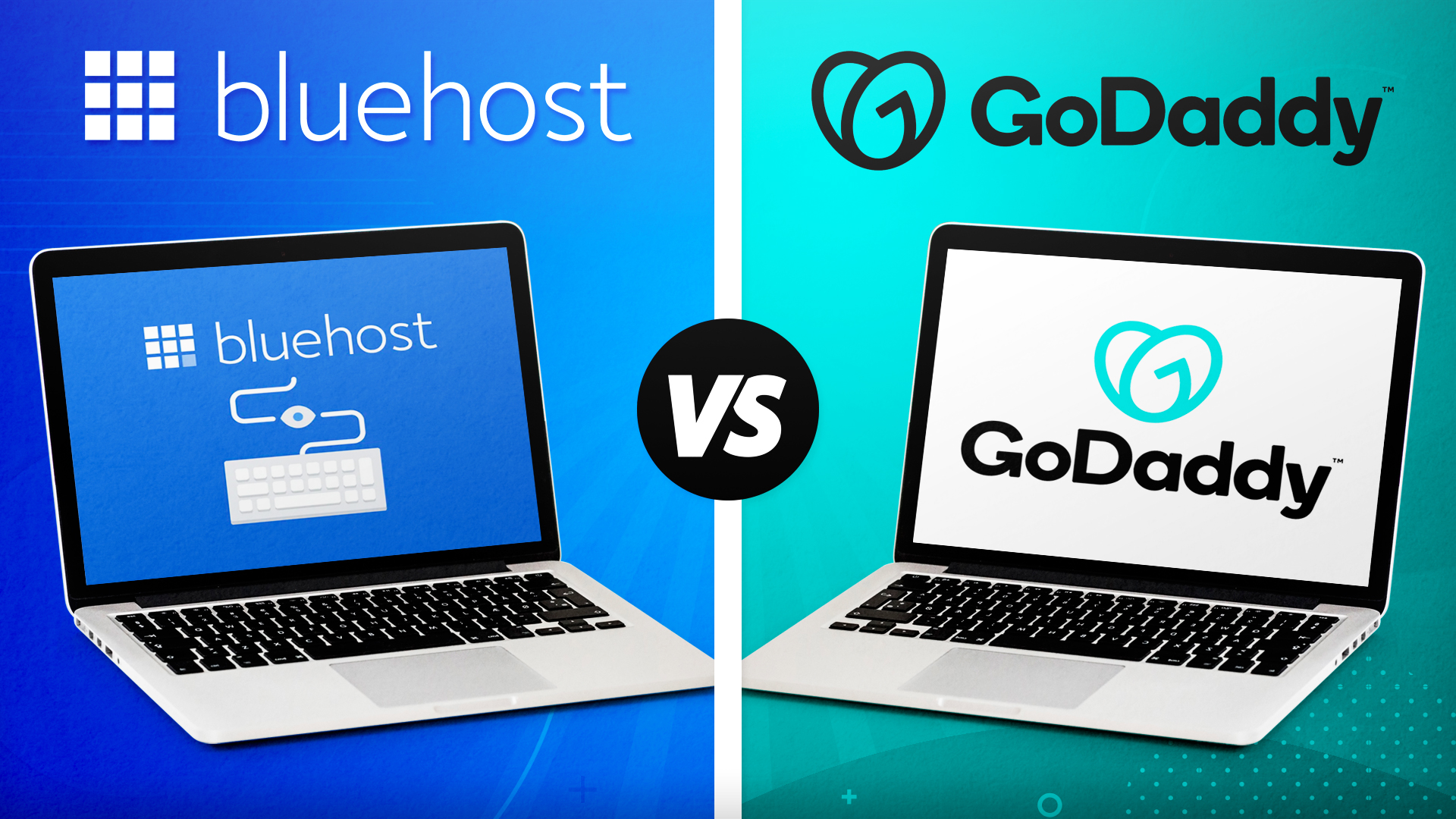
Bluehost and GoDaddy stand as behemoths in the world of website hosting, recognized by countless users worldwide.
If you find yourself grappling with the decision between these two industry giants, rest assured, you're in good company.
In this article, we'll discuss the strengths and weaknesses of both Bluehost and GoDaddy, equipping you with the necessary insights to determine the optimal choice for your hosting requirements.
What is Bluehost?

Bluehost is one of the leading web hosting giants globally and is officially endorsed as a WordPress host. They specialize in offering hosting plans optimized for WordPress, boasting faster servers and consistent performance.
With their shared hosting plans priced competitively lower than other providers, Bluehost emerges as an excellent choice for newcomers and small businesses operating on a tight budget.
Are you interested in this web hosting platform? Continue reading our Bluehost Reviews.
What is GoDaddy?

GoDaddy holds a prominent position in the web hosting realm as the world's largest domain registrar. They present an extensive range of hosting plans tailored for individuals and businesses of all scales.
While GoDaddy enjoys a significant market share in website hosting, and many prominent websites opt for their services, they might not always be the optimal choice for website creation, blogging endeavors, or launching a new business venture.
For more detailed information, please continue reading our guide on What is Godaddy.
Bluehost Vs Godaddy: What are the Differences?
Let's compare Bluehost and Godaddy side by side.
1. Ease of Use
Bluehost is praised for its user-friendly interface and seamless integration with WordPress. Their custom dashboard is intuitive, making it easy for beginners to manage their websites. The one-click WordPress installation and built-in marketplace for themes and plugins are significant advantages.
GoDaddy also offers a user-friendly control panel, but some users find it cluttered compared to Bluehost. GoDaddy provides a website builder, which is convenient for users who prefer drag-and-drop functionality. However, their WordPress integration is not as streamlined as Bluehost’s.
Verdict: Bluehost is generally considered more beginner-friendly, particularly for WordPress users.
2. Performance and Uptime
Bluehost guarantees a 99.99% uptime, and their performance is backed by solid server infrastructure and technologies like SSD storage, custom caching, and Cloudflare CDN integration. However, some users have reported occasional downtime or slow loading times during high traffic periods.
GoDaddy also promises 99.99% uptime and has a reputation for robust performance. Their hosting plans include a content delivery network (CDN) for faster loading times and more stable performance globally. However, some users have experienced issues with uptime and speed consistency.
Verdict: Both Bluehost and GoDaddy offer similar uptime guarantees, but user experiences suggest that Bluehost might have a slight edge in performance consistency.
3. Security Features
Bluehost includes essential security features in their hosting plans, such as free SSL certificates, SiteLock, CodeGuard, and SpamAssassin protection. Their integration with Cloudflare also adds an extra layer of security against DDoS attacks.
GoDaddy provides basic security features like free SSL certificates with higher-tier plans, malware scans, and DDoS protection. However, many advanced security features require additional fees, which can add up.
Verdict: Bluehost offers more comprehensive security features within their standard plans, making them a better value for money in terms of security.
4. Customer Support
Bluehost provides 24/7 customer support through live chat, phone, and email. Their support team is knowledgeable and generally quick to resolve issues. They also offer a comprehensive knowledge base with articles, guides, and tutorials.
GoDaddy also offers 24/7 support via phone and live chat. However, their customer service has received mixed reviews, with some users reporting long wait times and less satisfactory solutions. GoDaddy’s knowledge base is extensive but navigating it can sometimes be challenging.
Verdict: Bluehost has a better reputation for customer support, with more consistent positive feedback.
5. Pricing and Plans
Bluehost offers three main shared hosting plans: Basic, Plus, and Choice Plus. The Basic plan starts at $2.95 per month (introductory rate), offering 1 website, 50 GB SSD storage, and a free domain for the first year. The Plus and Choice Plus plans, priced at $5.45 per month (introductory rate), provide unlimited websites, storage, and domains.
GoDaddy has a more complex pricing structure with various tiers: Economy, Deluxe, Ultimate, and Maximum. The Economy plan starts at $5.99 per month, offering 1 website, 100 GB storage, and a free domain for the first year. The Deluxe plan, priced at $7.99 per month, includes unlimited websites and storage.
Verdict: Bluehost offers more competitive pricing and simplicity in their plans, making it a more attractive option for beginners and small businesses.
Conclusion: Bluehost Vs Godaddy
Both Bluehost and GoDaddy stand out as dependable and firmly established hosting providers. However, when the comparison is made, Bluehost emerges as the clear winner in our Bluehost vs GoDaddy showdown.
Bluehost shines with its comprehensive features, robust security measures, swift performance, and excellent value for your investment. Endorsed by WordPress, it consistently earns the top spot as our preferred hosting provider, offering everything you require neatly packaged into their hosting services.

